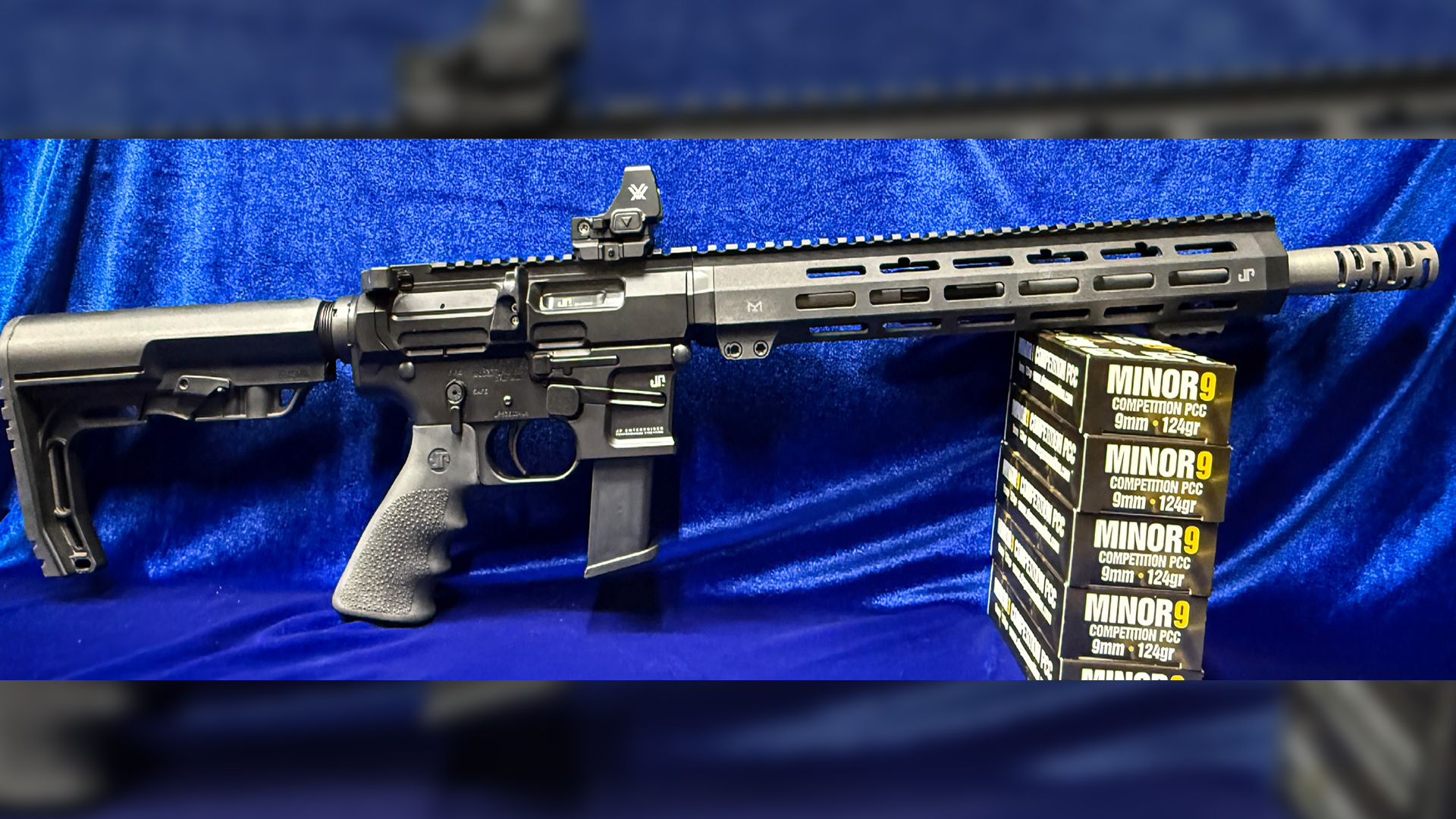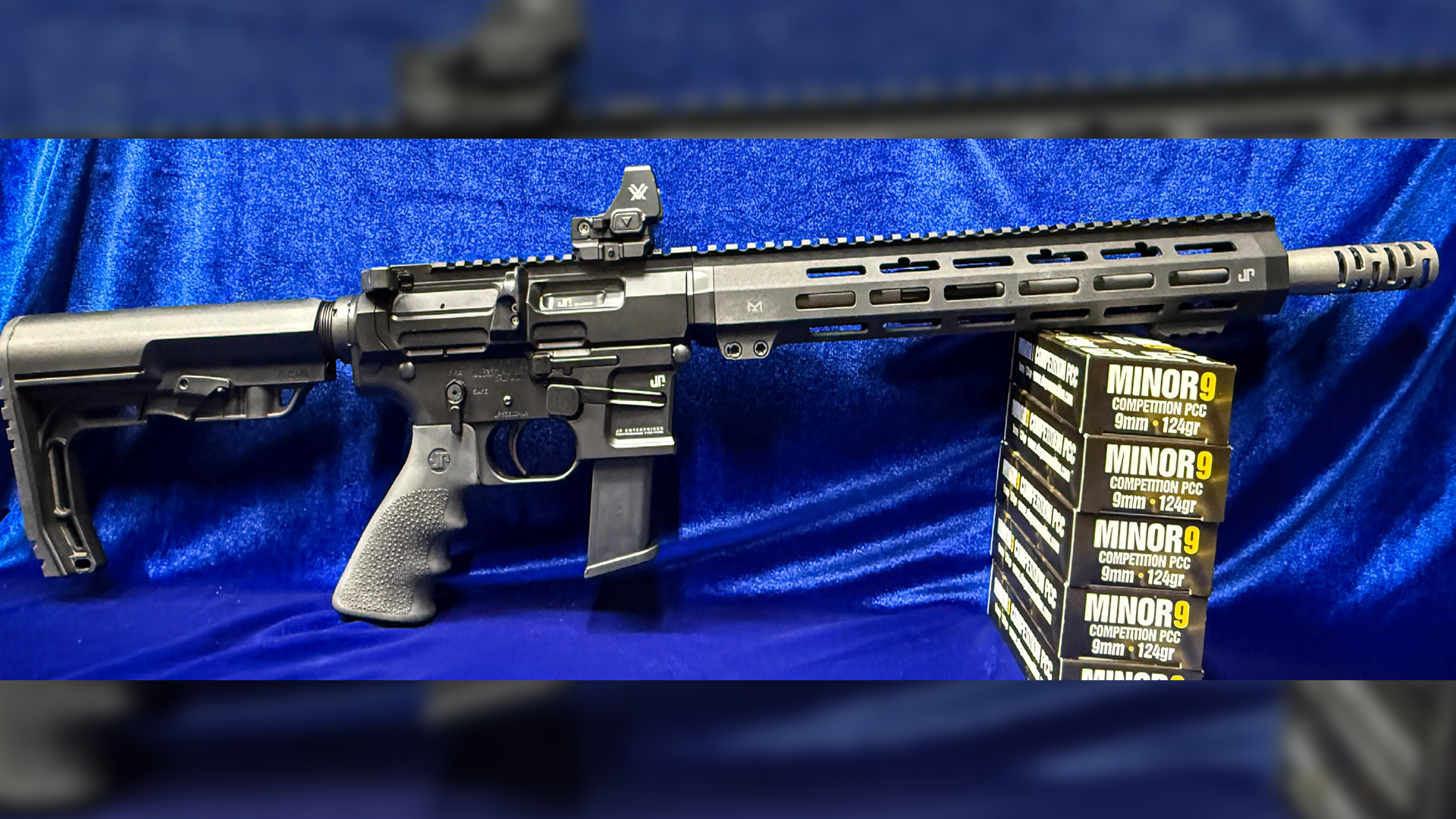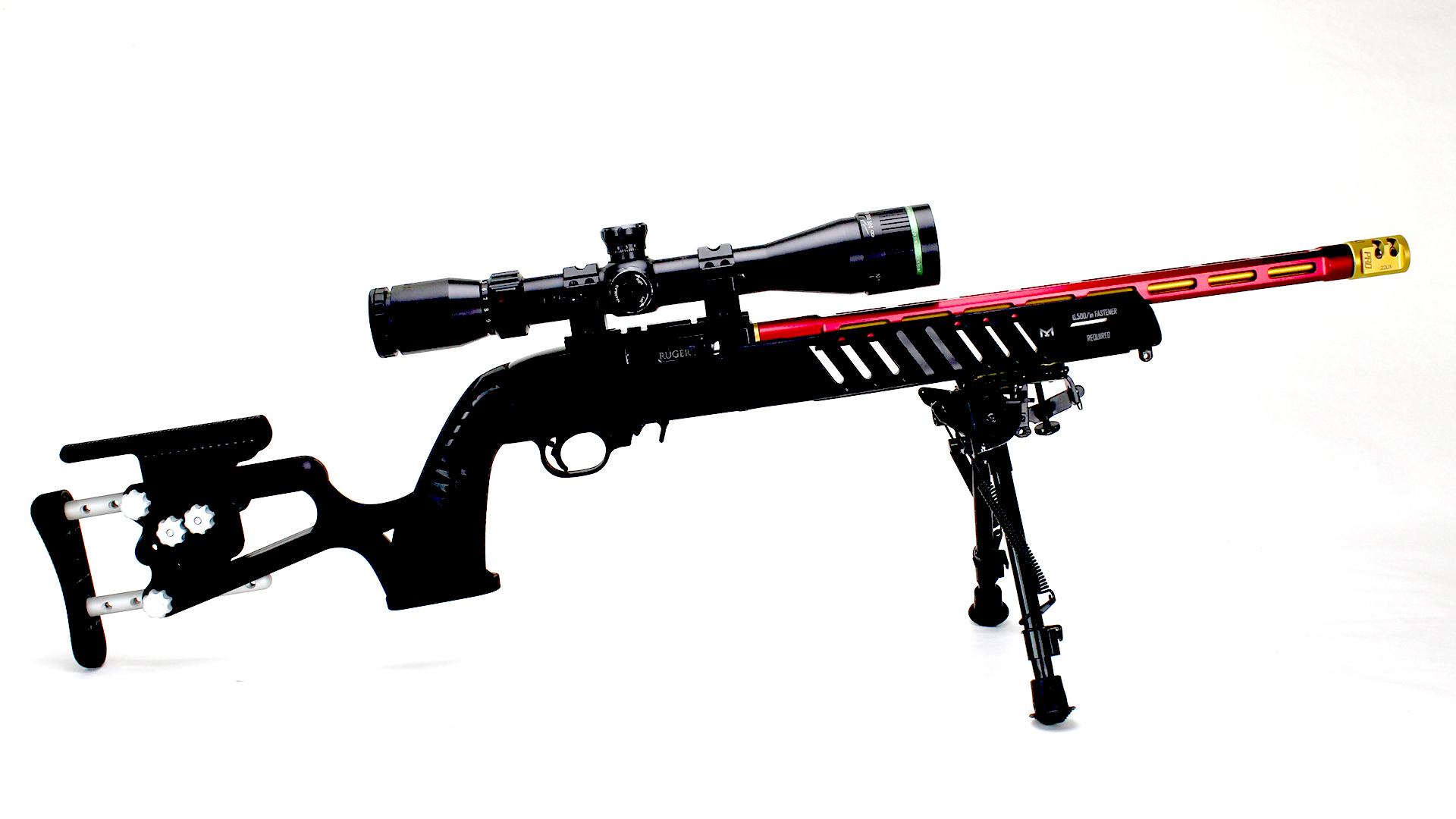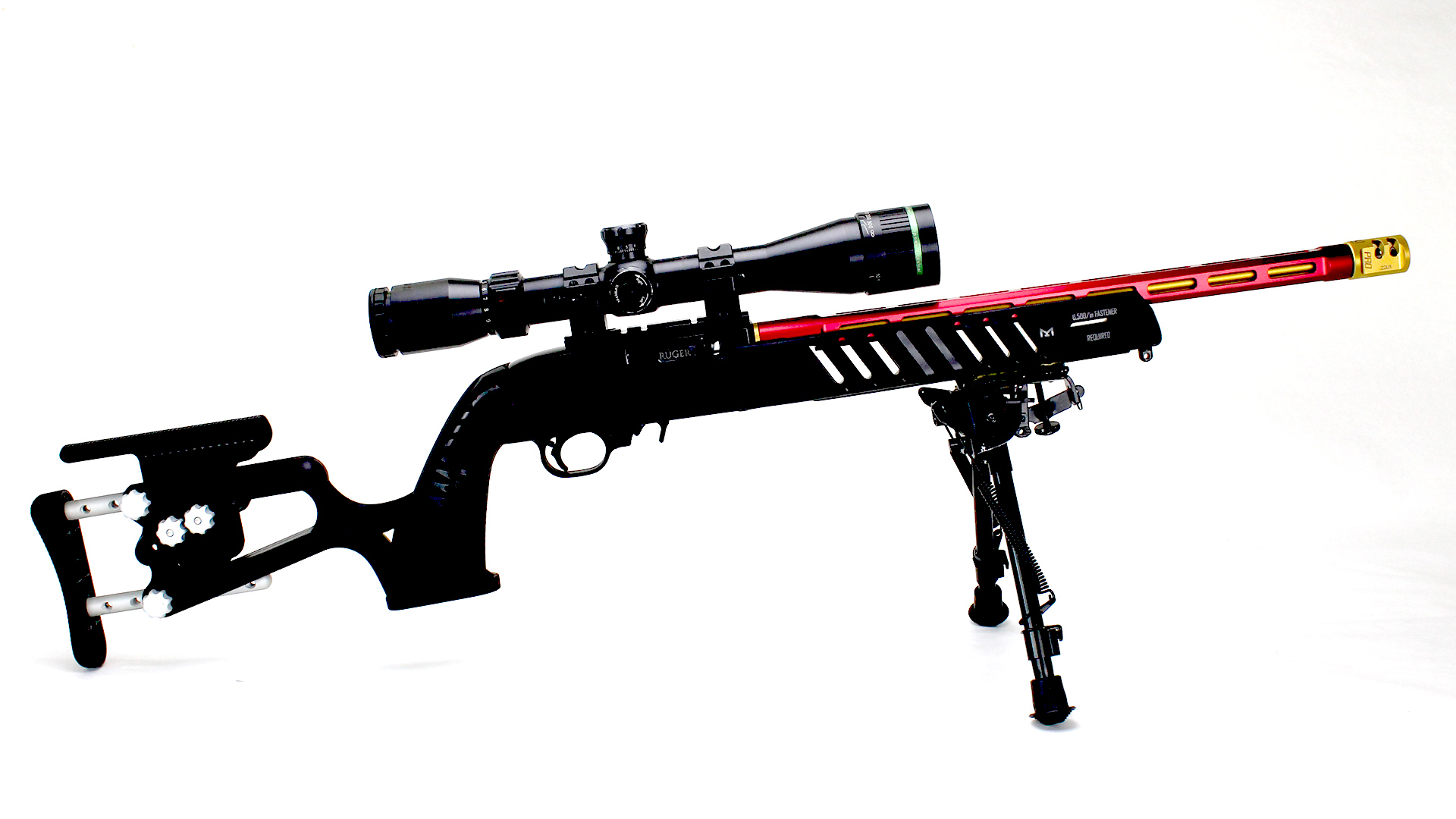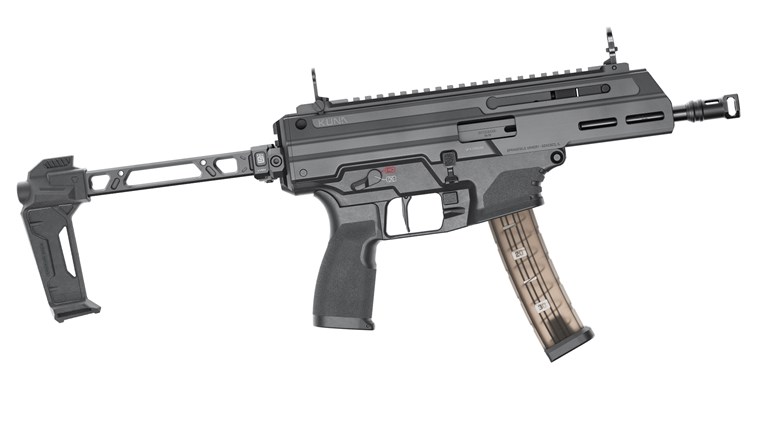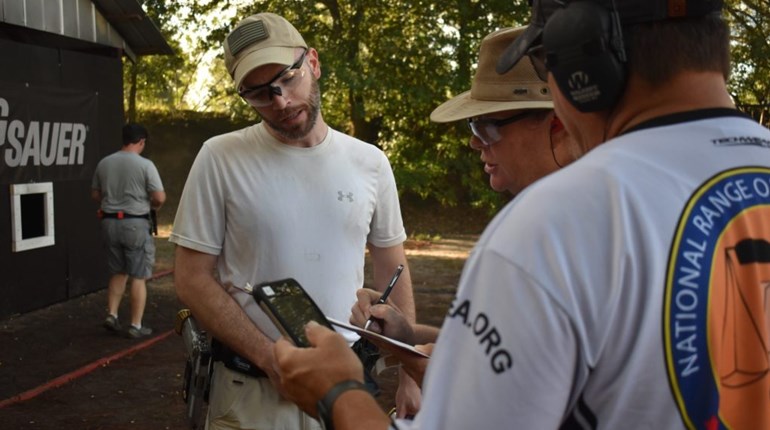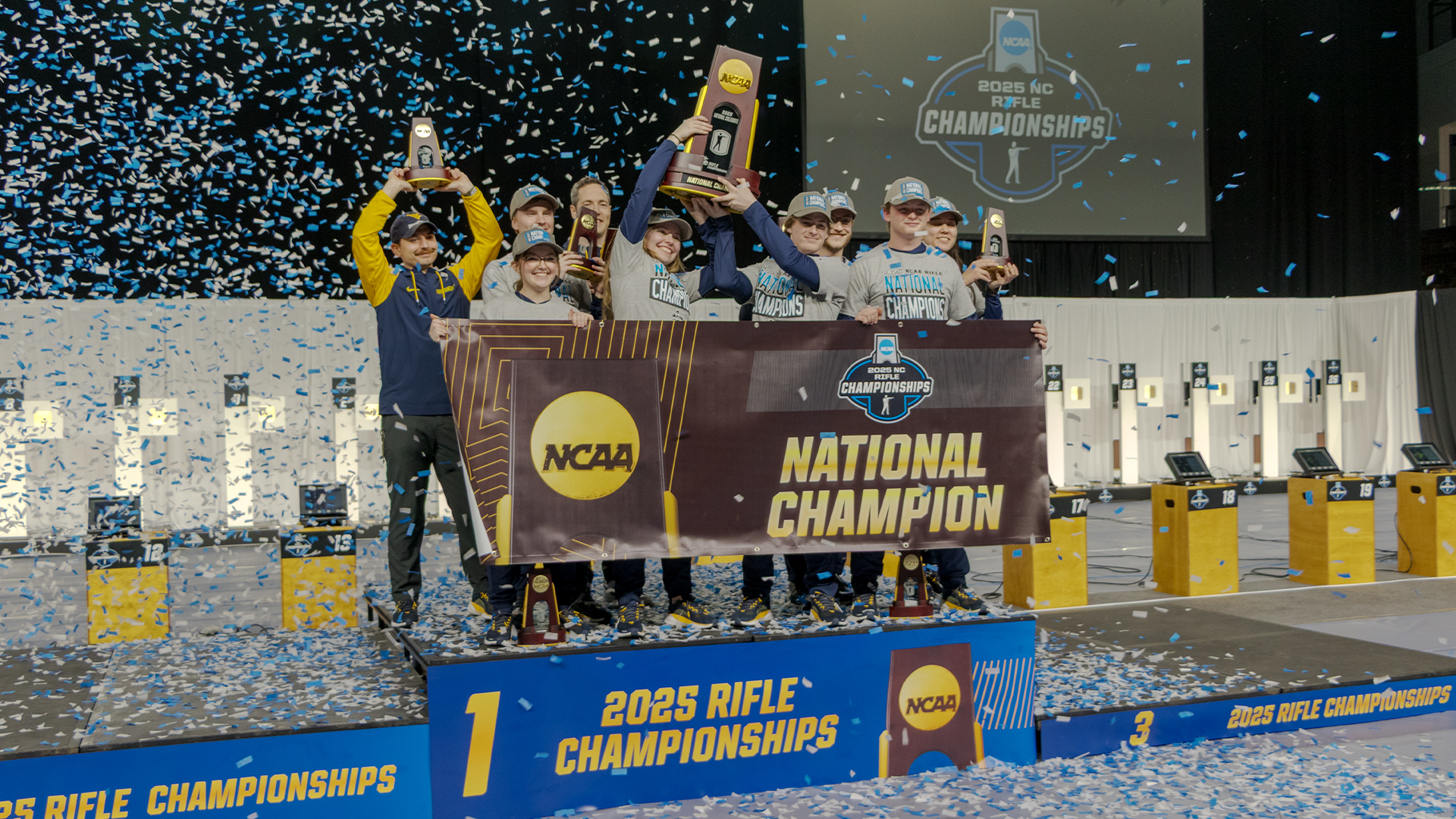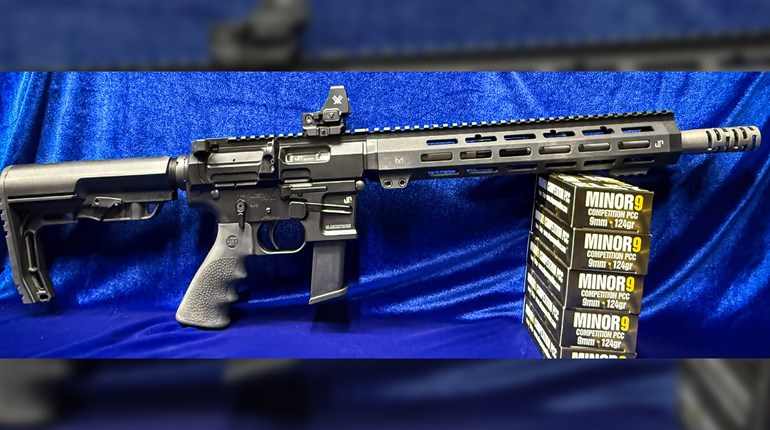
The 2020 USPSA Safariland Classic Nationals, sponsored by Ruger, were originally to have been held in the spring, as in previous years at the PASA Park near Barry, Ill. Fortunately, we were able to work with a new host facility, the CMP Marksmanship Park in Talladega, Ala., to reschedule the event from May to September.
The schedule change did affect attendance, as competitors were going to have to choose to shoot either the Classic or one of many other USPSA Area or Section Matches now being held within a few weeks of each other—many of them due to the amount of rescheduling this year.

The matches followed the one-day match format that the Classic Nationals has historically followed, with 179 competitors in Single Stack for the first match and 108 shooters shooting the Revolver/L10 match on Sunday. Competitors would be challenged with 14 stages that made up both matches for a total of 299 rounds required. The venue boasted 10 lower bays and five upper bays, allowing the match to have two zones, or six stops between the upper and lower bays. Competitors could shoot the stages in each zone and have a mid-day break for lunch delivered to each bay before moving to the opposite zone. The very large bays allowed for doubling up smaller short and medium courses to make up the 14 match stages.
Stages offered a mix of shooting, including a par-time standards stage, a quick one-string Virginia Count stage with “strong hand only” required and an eight-round speed shoot that challenged the limited capacity of these divisions. Each stage was a shooting challenge, not a test of how to manipulate a prop. Competitors would have to be on their game with a mix of hard cover, no-shoots and poppers intentionally laid out to require precise aiming. Targets were placed to offer competitors the chance to shoot and move or shoot on the move, but with limited ammunition capacity the risk of adding an unexpected reload was real. Many competitors found themselves with a slide locked back on an empty gun at the “Unload Show Clear” command—and that was if everything went right. During the awards ceremony Rob Leatham mused, “These stages held you accountable.”
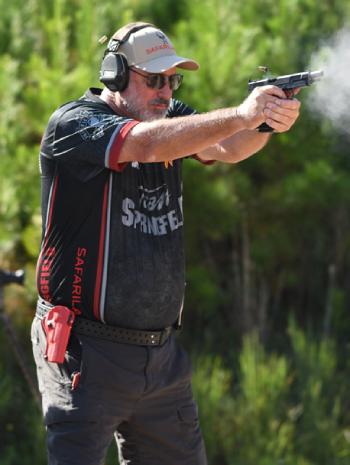
The initial match was Single Stack division-only that competitors could shoot on either Friday or Saturday. The Saturday squads could hold 120 competitors and were nearly full, even with a few last-minute dropouts. The race was on from the very first stage, “The 773,” a 22-round course with six poppers and two swingers. The poppers were split up in pairs, two on either side and two at 20 yards in the middle section of the stage. With only eight rounds for major or 10 for minor, competitors were going to have to be cautious with the stage plan to avoid adding another reload(s). The swingers also had hardcover on them, to add to the fun. The Super Squad started on this stage and saw several of them pick up misses. Rob Leatham would end here on the first part of the schedule and pick up a stage win, shooting 105 of the possible 110 points in 17.19 seconds. The stage moved two of the outside poppers into the middle section and two of the paper targets to the outside positions for the L10/Revolver match. Michael Poggie in Revolver would take his first stage win here, shooting 94 of the available 110 points in 20.61 seconds, and Mike Seeklander in L10 won this stage. (See Michael Poggie in the photo at the top of this article.)
Stage 2 “Perkins” was a 31-round field course with two poppers, one that activated a Rangemaster Steel bobber. The stage offered several options on how competitors could take the middle section and how to end in the last position with their target engagement. The first two positions broke down into eight rounds, but the added hardcover “encouraged” competitors to get on the sights—especially for a longer target only available from an uprange position. Any make-ups on the uprange positions required flat-footed reloads, and that never seems to go well. Jeff Cawthon ran this in 19.30 for the Single Stack stage win, and Blake Miguez was almost two seconds ahead of the rest of the pack for the L10 stage win. Michael Poggie added another stage win here in Revolver with a slower time but shooting 145 of the 155 points.

Stage 3, “ELS System,” presented the competitors a 32-rounder with 13 cardboard targets and six poppers. This was a stage that had been modified from a previous Classic Nationals, with a few targets added to up the round count. From the start position, there were several options that shooters worked through, deciding on how to take the target arrays that were available from many positions but would require them to hit at least four spots in order to see them all. The shooting on this stage wasn’t difficult. However, as Leatham pointed out, it would again require a competitor to be accountable, as they would be required to speed up on some close targets with a long transition into a distant shot and then another long transition back into a close double-stack array. There might have been some advantage on the two extra rounds shooting minor on this stage, allowing shooters to be more aggressive but the points deficit was a disadvantage. Elias Frangoulis took a stage win here in 18.90 seconds with a hit factor of 7.9894. In addition, Josh Lentz won the stage in Revolver with a 24.36 time and Glock’s Shane Coley won the stage in L10.
Bay 4 at the Talladega is a very wide bay that Stage 4, “015,” took full advantage of. This 24-round stage with nine cardboard targets and six poppers would have shooters going “coast to coast,” offering them the ability to shoot on the move or post up in positions to take targets. There were several viable options that allowed competitors not just the right or left first option, but where to take targets from, and how to break up the six-popper array spread across the back of the bay. Austin Ariss shot 115 of the 120 points in 18.13 seconds for a stage win in Single Stack. The start position changed from in the middle of the rear fault line for the Single Stack match to anywhere in the shooting area for the L10/Revolver match. Caleb Higby picked up a stage win in Revolver with a 19.75 time shooting 112 points, and Blake Miguez added another stage win here over Paul Kerr in L10.
Paul Kerr took the stage in Single Stack on Stage 5, “GLS Profit.” If you ever shot the Classic Nationals at PASA, then you know that having stages with ports was common—this was a “tip of the hat” to those stages requiring competitors to post up and take targets through the four ports on this stage. Thirty-two rounds with 13 cardboard and six poppers made up this stage with the four required ports to shoot through. The stage start position changed for the Revolver/L10 match, moving it from the rear fault line to the front left port, which would require a retreat after engaging the first two arrays. Miguez was the stage winner here again with a 19.76 time, the fastest in the L10 division, and Poggie in Revolver took another stage victory.
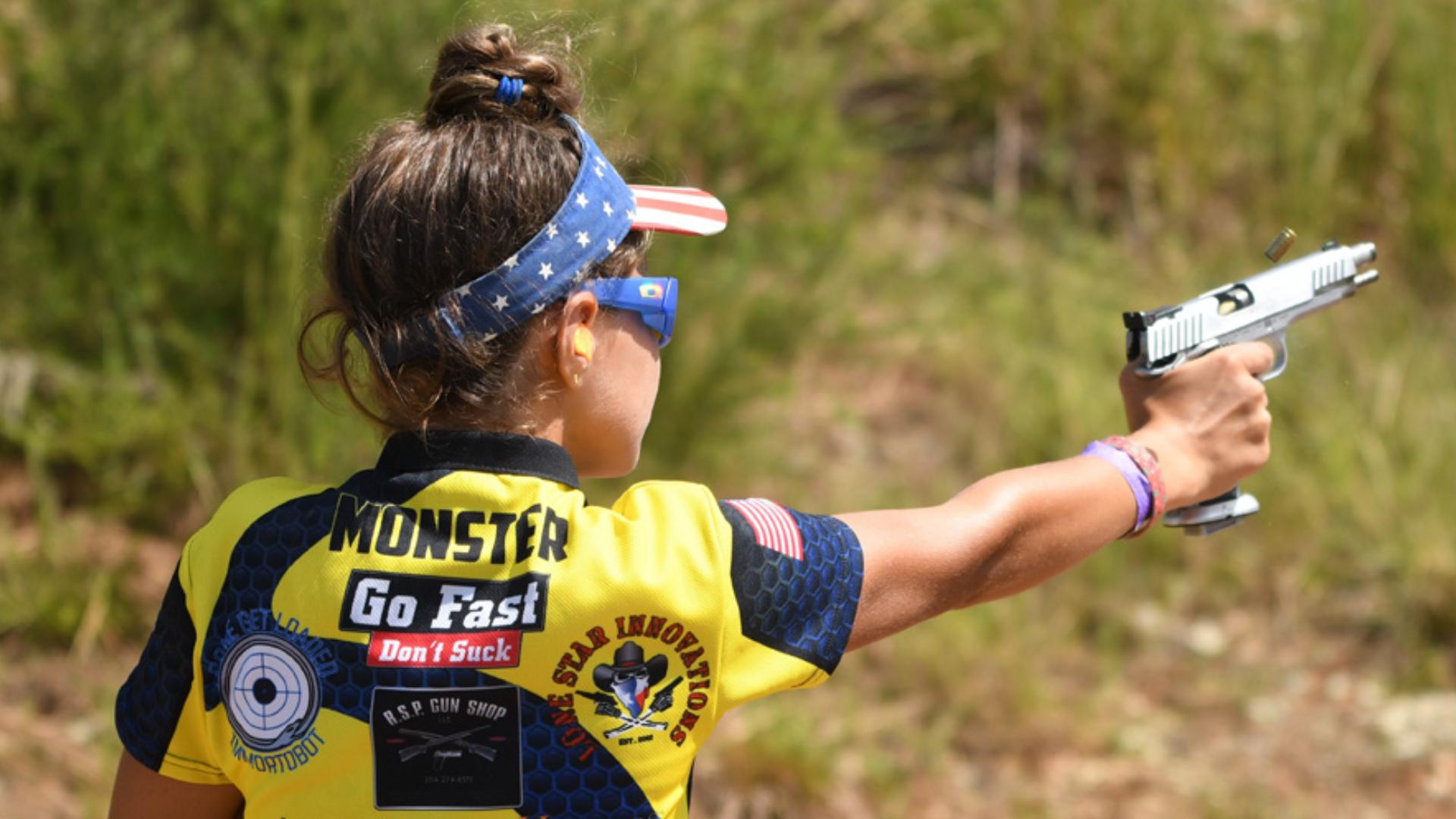
The lower bays’ zone finished out this part of the match with a double bay stage that had two speed shoots. Stage 6, “#2000 Saves,” had two swingers, two double-stack target stands and four poppers. This was a simple setup with only two eight-foot walls, and hands on the “eyes” of the Hunters HD Gold Banner. The left side of the wall had the double stack, two poppers and a swinger for eight rounds, and the right downrange side had the same mix for eight rounds. Capacity-restricted divisions like these allow for very little error in a shooter’s execution on the stage. A miss and a make-up is putting most competitors at a slide-lock reload, or in the case of Revolver, a standing and cussing reload. Seventy-two of the available 80 points in 10.16 seconds took the stage win for Caleb Higby, and Blake Miguez took another L10 stage win. Jeff Cawthon took another stage here in Single Stack, just barely edging out Justine Williams.
The stage that shared this bay, Stage 7, was another “wink” at a traditional Classic-type stage with an unloaded gun start short course that would again push the limited rounds in the magazine capacity. Simple enough with only four cardboard and six poppers, it still had a disaster factor with the unloaded start if you rushed the steel. Casey Reed took the L10 stage win, Vincent Guenther grabbed a win here in Revolver and John Vlieger, shooting minor, was able to find an advantage with the 10 rounds for a Single Stack stage win.
The top bays started with the par time standards stage, which was also a staple of not only the Classic Nationals but a regular type of stage found at most USPSA National Championships. We may have intentionally thrown a head fake in the match book here by leaving out the par time, and in the procedure showed that there was movement in the first string from Box A to Box B. The par-time omission was intentional, but there was a planned move from Box A to B after a reload. That was dropped after concern of competitors not being able to hear the second beep and that most would probably not attempt to make the move to the Box after the reload. It was changed up to a regular type of standards stage with a seven-second par time for each string—boring. But the stage, aptly named “TGO,” was won by Rob “TGO” Leatham, shooting 99 of the 120 points in Single Stack.

Stages 9 and 10 shared a bay, a rather simple Virginia Count stage set up next to a new classifier stage that was being vetted. (Be on the lookout for more information on this stage in the future.) Stage 11, the “771,” was another stage taken from a Classic Nationals of a few years ago that was modified for this match by adding two targets, moving the fault lines back away from the vision barriers and removing a wall section that had a port in it. This was a 28-round stage with four steel that would require shooters to hit either far side of the shooting area and also offered some up-close fast targets in the middle, but required a speed change to pick up the small poppers. John McClain in Single Stack put together a stage win here with a 16.46 time, shooting 134 of the 140 points. Michael Poggie continued to rack up the stage wins on his way to another title in Revolver, while Casey Reed snagged another in L10.
“Impulse,” better known as Stage 12, or even better known as “I hate Jake” was a simple eight-round stage. Not sure why people were cursing me—three targets and two mini-poppers were all that stood in the way of the shooters. Oh, and hardcover, and an unloaded start, and if you missed, you were standing there hoping I would be struck down wherever I was on the range at that moment. This was a simple little 40-point stage that even I managed to not screw up; hell, Phil Strader won the stage in Single Stack, so apparently it wasn’t about skill—just luck.
Stage 13 “Liberator” was a stage featuring twin bobbers activated by a single popper. This was only a 20-round stage, but it had everything in it—activating targets, four poppers, targets through ports, hard lean and the ability to shoot on the move, as well as the ability to crash and burn if you didn’t keep it together. There was no room for error, and only hard feelings if you had to do any make-ups. Jeff Cawthon pulled another stage win here in Single Stack. Since I wasn’t feeling enough hate from the Single Stack match, we changed this stage to an unloaded start in L10/ Revolver Match. I was serious about the “no room for error” in the second match, but Caleb Higby grabbed another stage, as did Casey Reed in L10.

To finish out the match, I threw in a straight-up yanking-the-trigger hosefest on Stage 14 “Speedloader,” 24 rounds with 12 wide-open cardboard targets that would let people go crazy. This was taking the restrictor plate off the race car, letting people rip and breaking the stage up into three eight-round arrays. Oddly enough, 26 percent of the shooters in Single Stack had misses, 12 percent in Revolver and 26 percent in L10. Put big open targets out there and suck people into going nuts apparently makes them a little slap-happy—especially on the trigger.
This was the 25th Classic, originally held at PASA Park, but not recognized as the Single Stack Nationals until 2006, once Single Stack became a USPSA division. In 2018 and 2019, Single Stack was combined with other divisions as part of the LOCAP and “9 Days of Nationals.” This year’s match was an attempt to return to the one-day format, stand-alone Single Stack Nationals and almost everyone who had shot the original and this match was happy to see it come back. They were pleased with the stages that were very similar to the originals and a few with higher round counts that pushed the limited capacity of the divisions. We had been approached by Scott Carnahan of Safariland about doing something big in 2020, so it was offered to Safariland to sponsor. Scott has been not only a competitor in USPSA but a huge supporter of not just Nationals but practical shooting in general, and has been the driving force in Safariland’s continued development of competition gear and support for their team and the matches. Carnahan retired from Safariland earlier in the year, and this was also his last competition match, so he wanted to shoot with the Safariland Team. We were able to make that happen even with the reschedule, and there were a few surprises along the way.

If you couldn’t tell, all but one of the stages was named after Safariland products; Carnahan said it looked like we went through the catalog and picked out his favorites. Rob Leatham could have been shooting on the Super Squad but requested to shoot with Carnahan, so we made that happen for them. In doing so, Leatham wasn’t tracking how the Super Squad was doing and comparing scores throughout the day. In fact, on Leatham’s first stage he had two misses and spent a good deal of time pouting about it, as this was something he had never done (or at least remembered doing, he is old). He wasn’t paying attention to his performance and was just shooting and enjoying the time he was spending with his teammates on this special day for Carnahan—so much so, he wasn’t even aware that he had won. He received a phone call congratulating him on the win and thought they were messing with him until he saw the scores get posted. This was his 18th Classic win in Single Stack, and he got to have his long-time boss and teammate present him with his trophy.
Congratulations to Michael Poggie for his fourth Revolver National Title and Blake Miguez for the L10 National win. I also want to add a big thank you to all the shooters for their patience and understanding for the rescheduling of the match during this difficult year, and for making it fun to get out on the range. Shout out to the hard-working volunteers and staff who continue to show up and make it all possible.
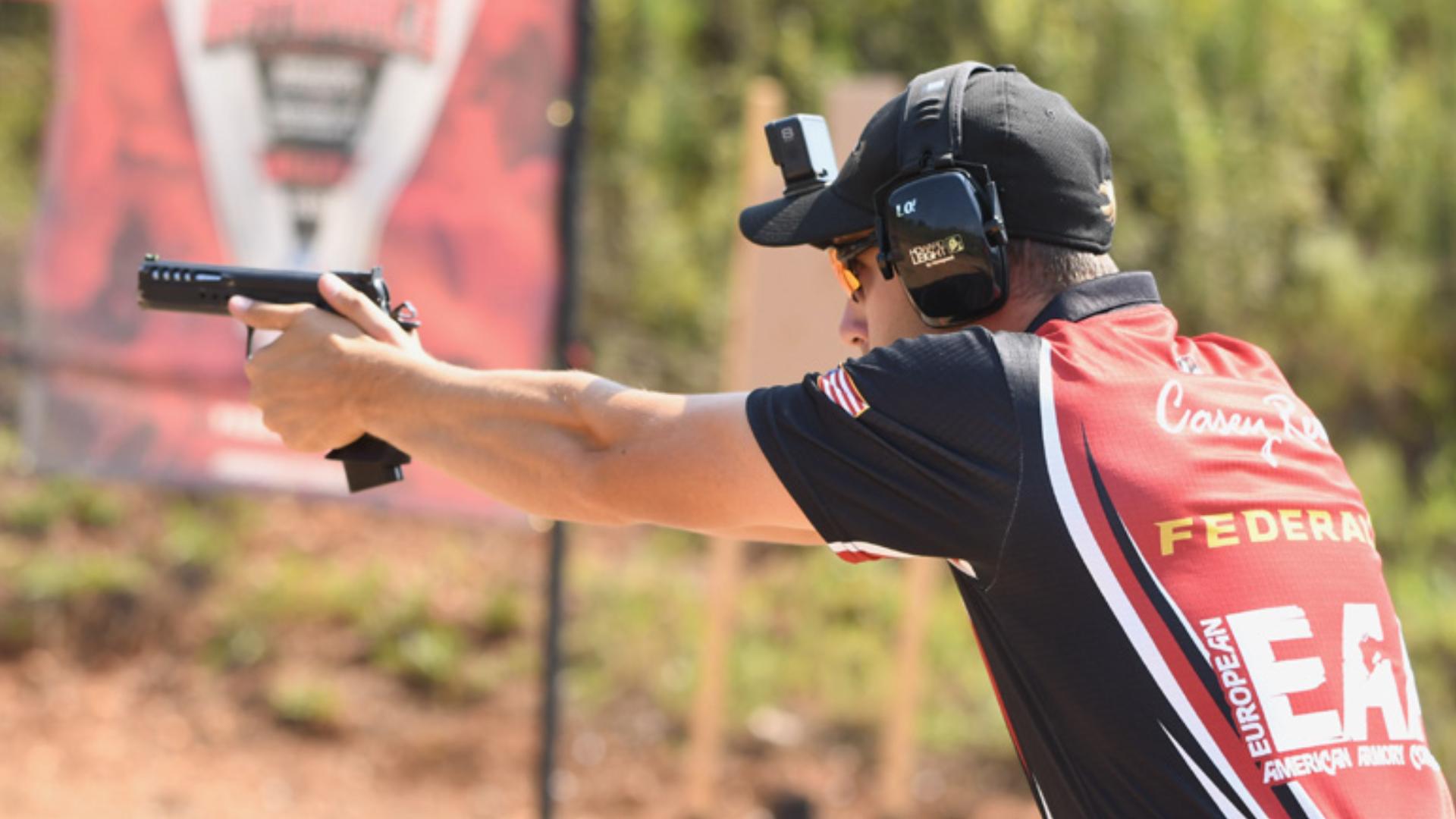
Next year will see a return to the LOCAP format combining Single Stack, L10, Revolver and Production in a three-day match back at the CMP Marksmanship Park, currently scheduled for May 7-9 in Talladega, Ala.
Article from the November/December 2020 issue of USPSA’s FrontSight magazine.
Read more: Top USPSA Production Handguns In 2019







